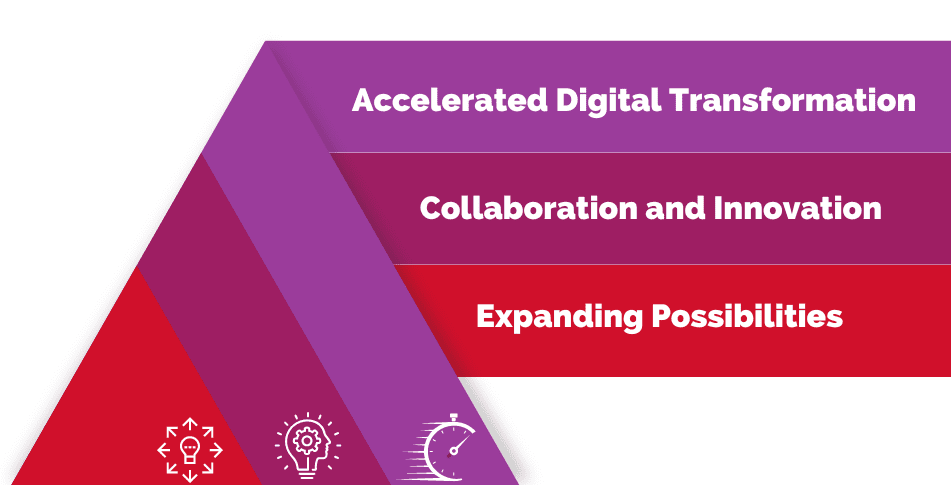15.02.24
3 Ways to Leverage APIs in the Insurance Industry
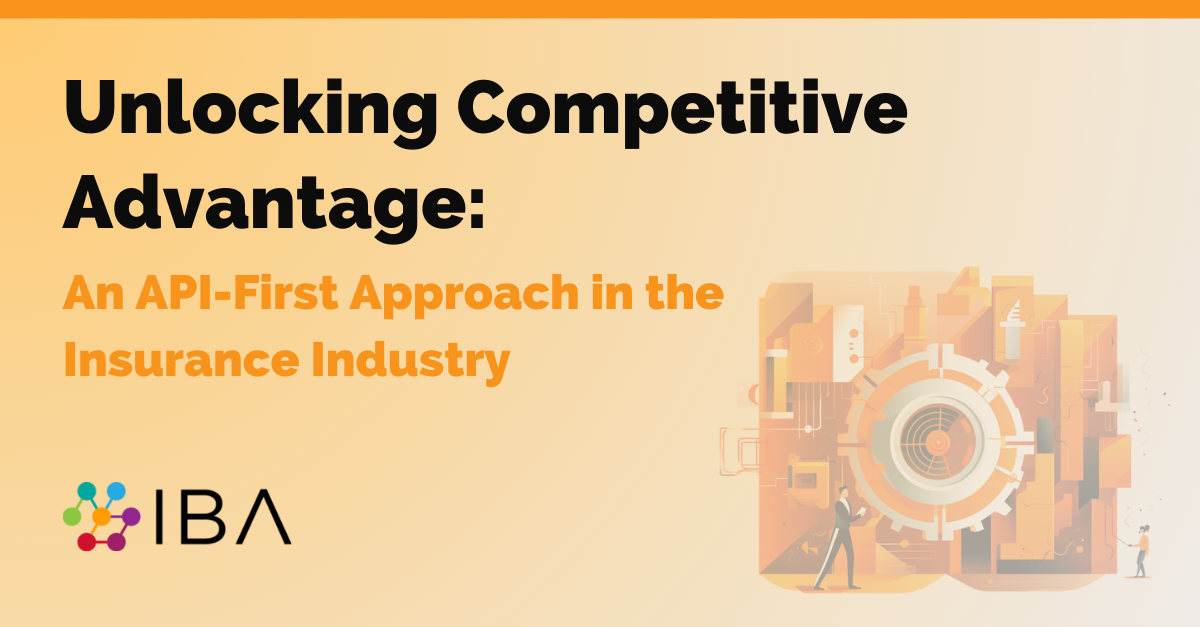
APIs play an integral role in the global economy, particularly in the insurance and financial services sector.
APIs were developed over 20 years ago as a simpler, quicker, cleaner way to share and transmit data and information between one system and another. Now, APIs are so mission-critical and important for businesses everywhere that the term “API economy” has been coined.
According to McKinsey, “88% of respondents believe APIs have become more important over the past two years” in the insurance and financial sector. “81% think APIs are a priority for business and IT functions.” On average, 14% of insurance IT budgets go towards API development, maintenance, and fully-fledged API programs.
Hence, the market for APIs and API management is vast and growing fast. According to market research data, the API market is expected to be worth $49.9 billion in 2032, with a compound annual average growth rate (CAGR) of 28%.
In this article, we’ll explore the ways the insurance business can benefit from APIs and increase their deployment across the organization and technology stack.
Why are APIs useful in the insurance industry?
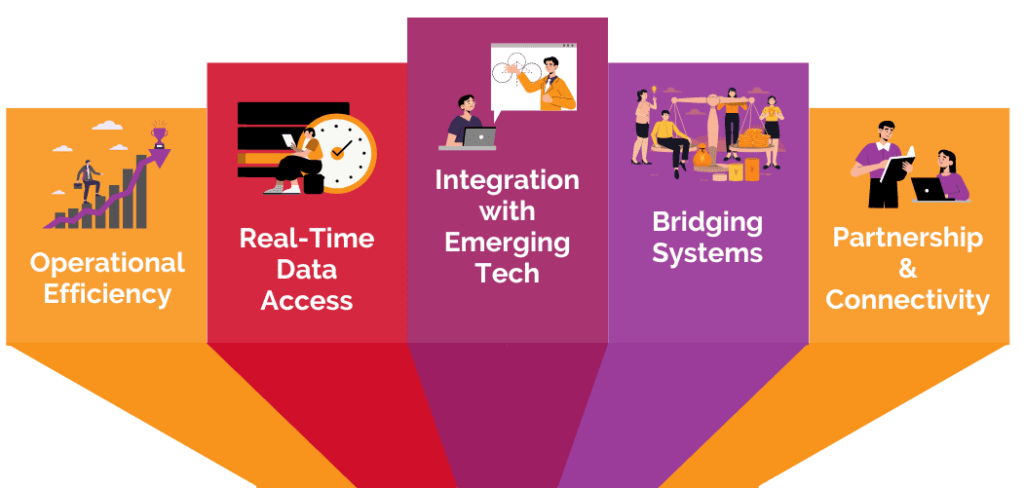
APIs are no longer a “nice to have”, they’re essential. McKinsey has found, over the last few years, that insurance and the entire financial sector are “gaining confidence and steadily improving their API maturity along key strategic, technological, and people dimensions.”
Interestingly, one of the ways APIs have reached a higher maturity level in organizations is the shift from cost savings to monetization. In 2020, the aim of using APIs was to reduce IT complexity. That is still a crucial consideration for insurance companies; it’s also one of the reasons insurers use IBA’s IBSuite.
However, insurance firms are now seeing how valuable APIs are for driving innovation. Deploying and integrating APIs have helped insurance companies modernize legacy systems, and this is making it easier to quickly develop and launch new products and go-to-market quicker than it was possible only a few years ago.
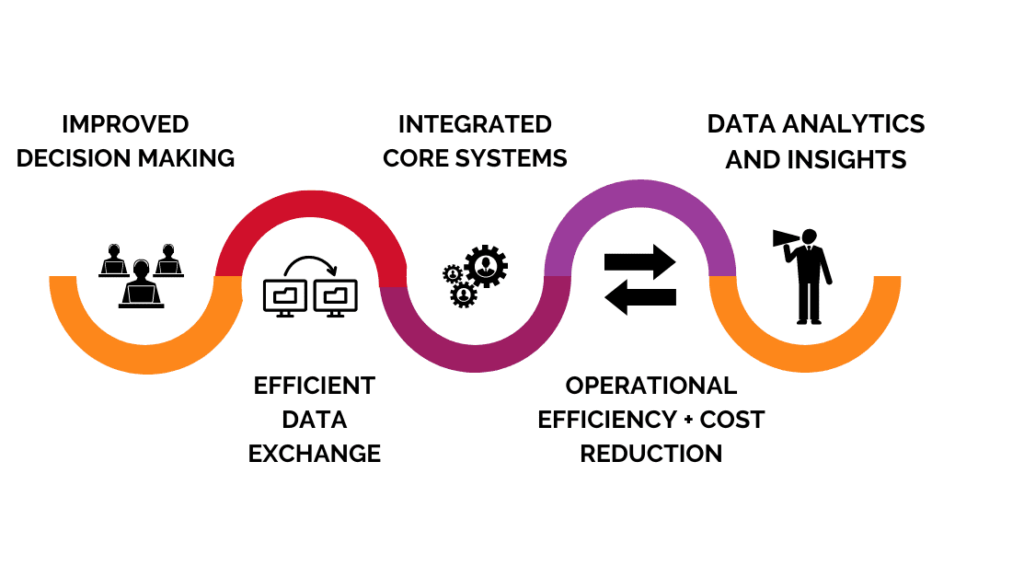
3 Ways APIs can give insurance sector firms a competitive edge.
Here are three ways APIs are giving insurance businesses a competitive edge.
#1: Improving and streamlining customer engagement.
One of the main reasons for using APIs and integrating them into customer-facing and back-end systems is the enormous amount of business value they can generate. Improving customer experience and customer engagement has never been more important.
Back 15 years ago, when APIs weren’t fully understood or appreciated, there were a lot of middle-layer technology vendors selling their solutions. Insurance companies ended up with bloated and complex systems. In practice, this meant that even small policy changes in an admin system would become a substantial program of work to deploy that change in the front end.
With cloud insurance platforms being API-first, meaning adopting a new model of software development, where applications like Sales (producing a quote), Policy Administration, or claims handling are conceptualised and built as interconnection of internal and external services through APIs. This allows the insurer to have the possibility to optimize the customer engagement on all levels by utilizing data from many sources and presenting it in a front end on any device. Being customer-centric in the approach of selling insurance and maintaining their customers.

#2: Instant aggregator and customer insurance quote responses
Speed is everything when it comes to generating insurance quotes to obtain the interest of the prospect. The digital customer journey has failed if potential customers are waiting anywhere from 20 to 60 seconds for a policy quote or if it doesn’t respond immediately on mobile devices. Slow responses equal lost opportunity to get new customers.
APIs supports the insurer in multiple ways e.g.;
- A digital shopfront andto build the entire digital customer journey, supported by domain-aligned teams.
- Compete in the aggregator drive markets by providing your quote in secs and be on the top of the list
- Interact in ECO-systems via APIs, share information with your partners to broaden the service.
- Data collection & Aggregation – better insight into your customer 360.
- Make changes to products and have it reflected in the customer journey ASAP
- Make it easy and simple to integrate to and from various systems
Hence APIs are an instrumental gateway for interactions with the market and a key enabler of new revenue.
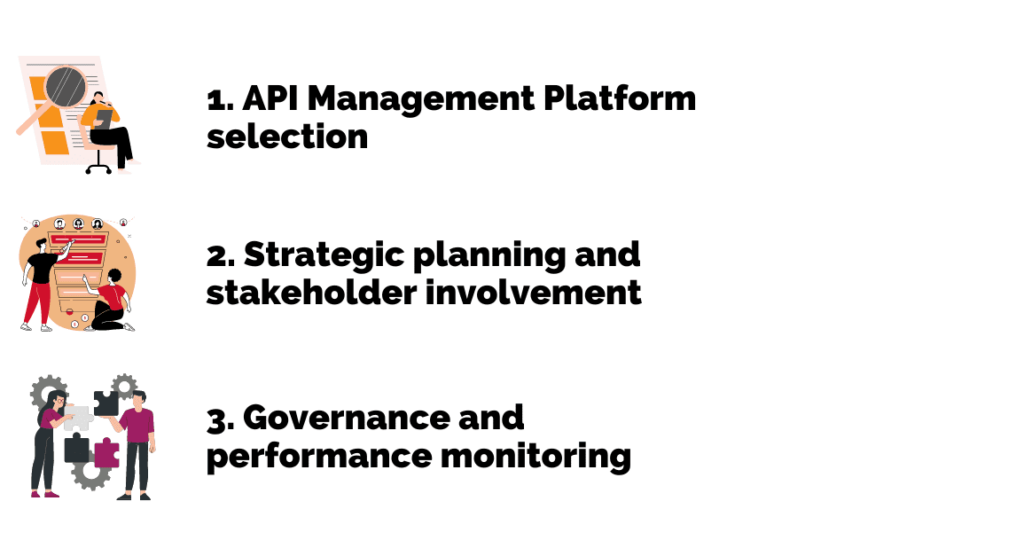
#3: Combining APIs and Generative AI for enhanced customer personalization
APIs will make a difference going forward in the integration of generative AI (artificial intelligence) large language models (LLMs) and other machine learning tools, such as OpenAI’s ChatGPT.
With an API-based connection to the right databases and data lakes, the insurers have a possibility to leverage AI to enhance the context of human decision-making, in the customer service function as an example, AI could automate personalized responses to customers. Automatization of the claims process with AI is also a potential minimizing fraud and speed of the claims handling process.
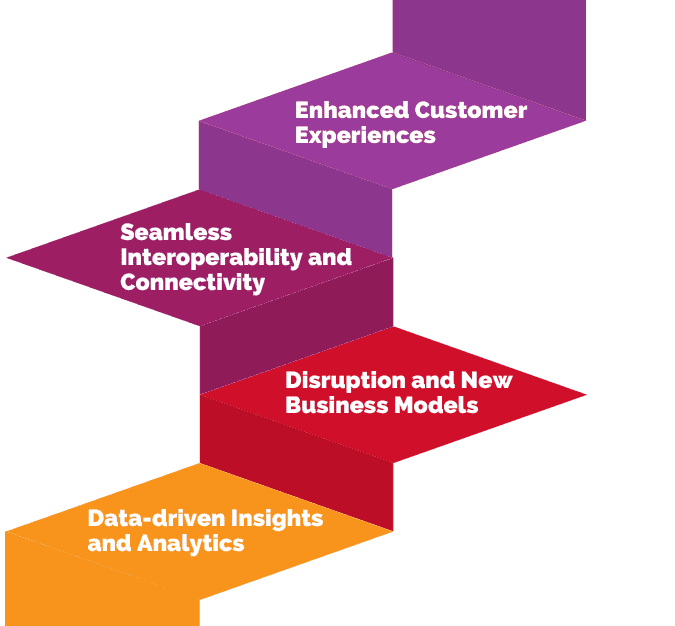
API a key enabler of the digital transformation in insurance: Key Takeaways
The insurance business is data heavy, managing data and delivering real-time responses is essential to meet the digital customer now and in the future. APIs are a key enabler of the accelerated digital transformations, offering tailored products, faster customer service, and a better digital experience for customers.
APIs are also integral for collaboration and innovation, such as expanded partnerships with industry stakeholders, aggregators, brokers, insurtech startups, and data providers.
With the deployment of APIs increasing and being taken more seriously in the C-Suite and in boardrooms, this expands the possibilities for insurers tapping into a larger array of data sources to create new products, services, and revenue streams.
IBA’s IBSuite: The proven API-First digital insurance platform. Trusted by property and casualty insurers, enabling digitization, new business models, technologies, and automation, giving them a competitive edge in a hyper-competitive insurance market. Find out more and speak to an expert about a demo.
